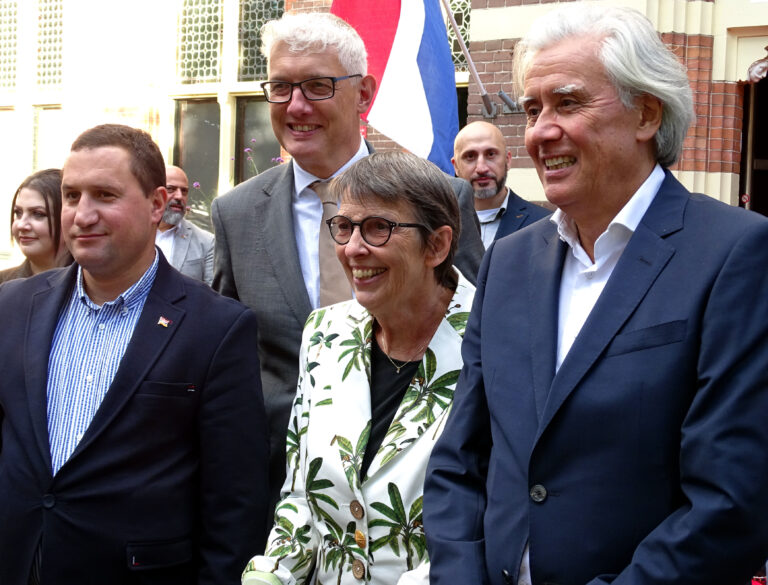By Roy Lie Atjam
It was on 15 September 1821 that four Central American countries – Costa Rica, El Salvador, Guatemala and Nicaragua(Honduras) obtained their Independence from Spain.
Over the next two centuries, each of these Central American countries would follow its own path of development. Nevertheless, they do face a number of shared challenges. Solidarity has become a rare concept, it’s heartening to see the solidarity and camaraderie these countries demonstrate by perpetuating the celebration of their independence together. Moreover, the Central American warmth, ambience, colours, and music took the event to a climax.
The Hague, 15 September 2022, Ambassadors of the four Central American countries, Costa Rica, El Salvador, Guatemala and Nicaragua – celebrated National Day with a reception at the Leonardo Royal Hotel.

With a rotating system in place, this year the Ambassador of Cosa Rica, H.E. Mr Arnoldo Brenes Castro, had the privilege of delivering the welcome remarks.
“On behalf of: the Ambassador of El Salvador, Her Excellency Carmen María Gallardo, the Ambassador of Guatemala, His Excellency Jorge Skinner Klé-Arenales, the Ambassador of Nicaragua, His Excellency Carlos Argüello and myself, Arnoldo Brenes, Ambassador of Costa Rica, I give you a warm welcome to the commemoration of our national day, the fifteen of September.
I have been honoured by my colleagues to give this welcoming remarks today, which I intend to keep short in the benefit of the enjoyment of our gastronomy and each other’s company. We highly value your presence here today, and more so as we are aware of the multiple commitments in your agendas.
This year we commemorate the two hundred and one anniversary of independence of the Central American Republics of Costa Rica, El Salvador, Guatemala, Honduras, and Nicaragua.

As has already become a tradition in The Hague, our Embassies have joined their enthusiasm to organize a shared commemoration of this date.
All five Central American republics achieved our independence on the same date, 15 September 1821, and so it is only appropriate that we all celebrate it together. And to do so in the the city of peace and justice has a special meaning to us, because it allows us to renew the bonds of friendship and cooperation with the Kingdom of the Netherlands and the diplomatic community accredited here, as well as with the international organisations, which are so deeply relevant to our common goals of multilateralism and a rules-based international order.
This year we have been able to receive more guests than the previous year, as the world has started a new phase of the COVID-19 pandemic, that allows us to reconnect through in-person events.

More than two centuries ago, five republics, located in the centre of the Americas started writing their own path as independent nations. Today, our countries are integrated into the international community, and they offer multiple opportunities but also share common challenges. To face common challenges, such as the multiple adverse effects of climate change, including extreme weather conditions, but also organized crime and narcotraffic, and the unstable economic and financial environment, we have confidence in the cooperation and partnership with our friends in the international community.
In terms of opportunities, we share a great strategic location which has allowed us to integrate into the global world, by means of a developed network of trade and investment agreements with multiple partners, including the European Union and the Kingdom of the Netherlands.

We are a multi-ethnic and pluricultural region, with an outstanding nature and biodiversity, including its marine biodiversity, which we are committed to protect for the benefit of all.
Today our Embassies are delighted to offer you varied sample of our gastronomy as a token of our friendship and appreciation. We invite you to take with you the flavours our region has to offer, and hope you enjoy it. We thank you once again for being here today.”

Many ambassadors, VIPs, Dutch business representatives, and Internationals came to felicitate the four Central American Ambassadors on this momentous day. Among them were the Ambassadors of Brazil, Kosovo, Malta, Belarus, South Africa, IOM, OPCW and others. Guest were treated on a buffet lunch of typical dishes from the different countries.
It really has been a delightful afternoon!
————–
Photography August Zeidman



























